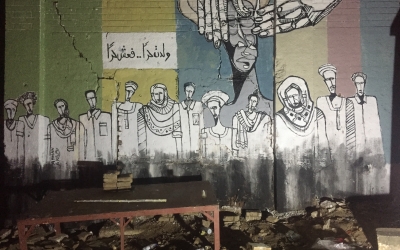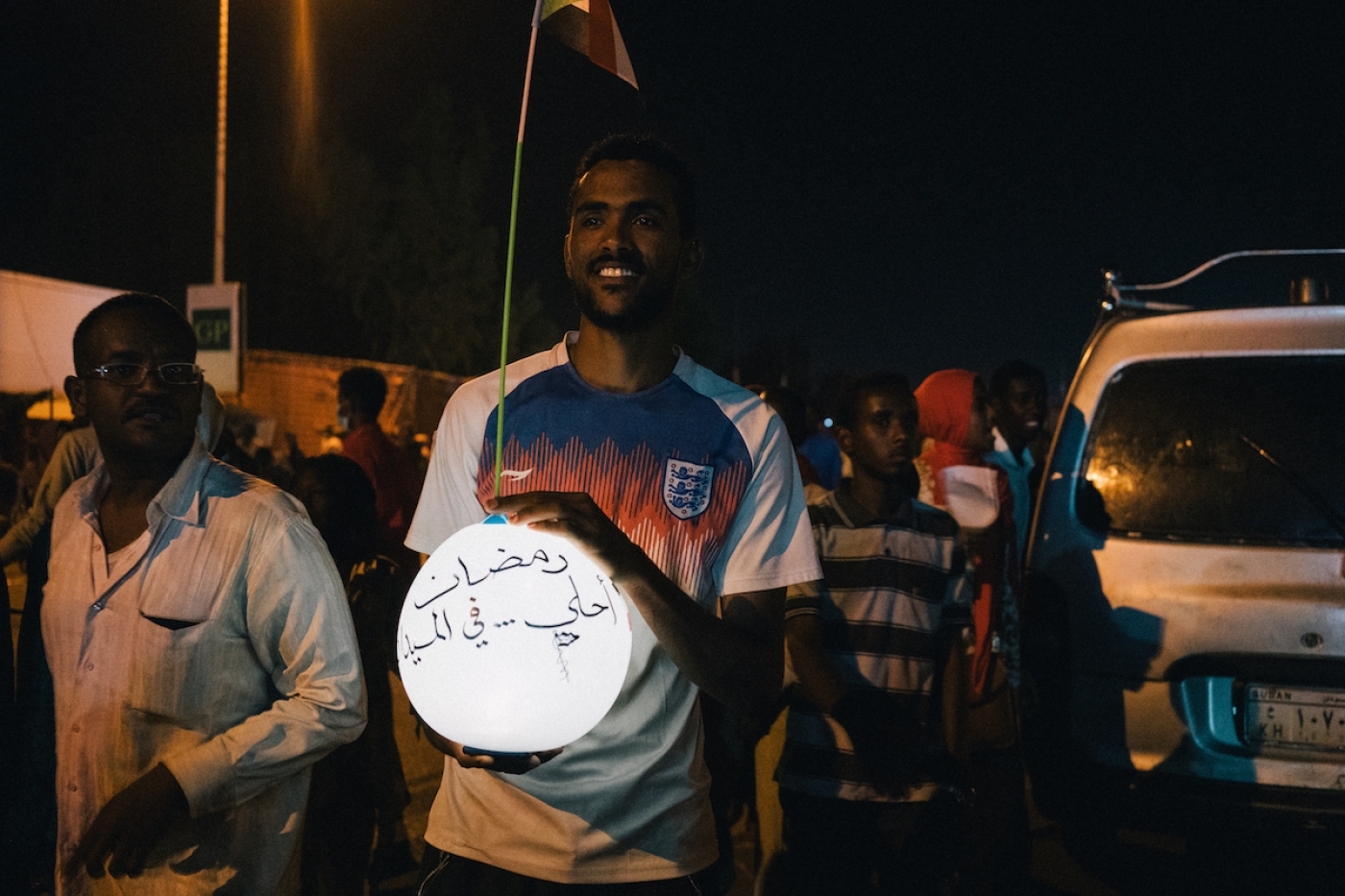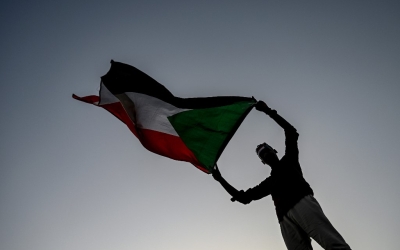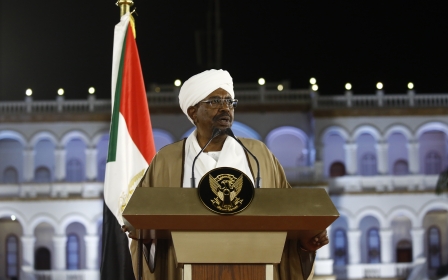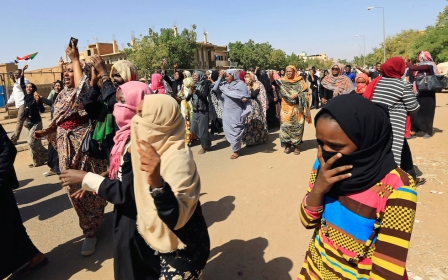'Beautiful Ramadan': Prayers, celebrations and determination at Sudan's protest sit-in
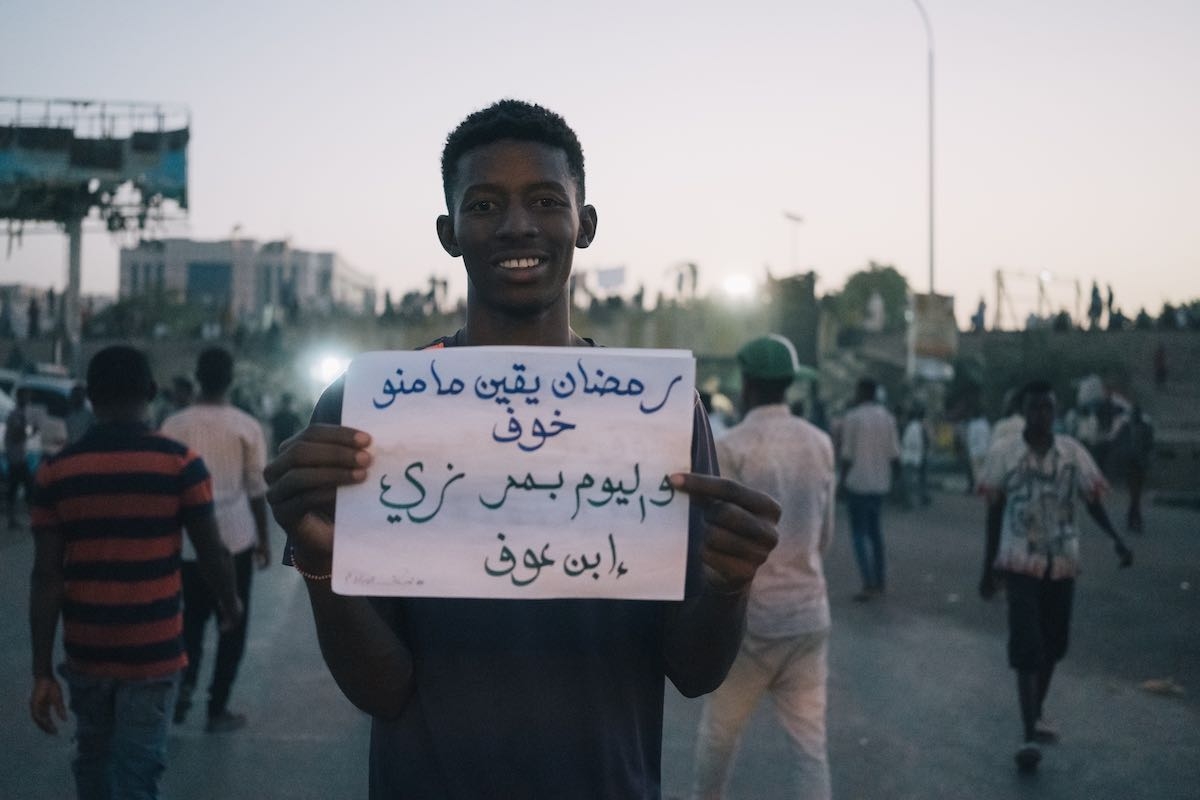
Long lines of worshippers gathered for the first of Ramadan’s nightly prayers outside the Sudanese military headquarters in Khartoum on Sunday, hoping the Muslim holy month can inject more energy into a sit-in protest that has now lasted a month.
Throughout the day signs declaring “Ramadan is most beautiful in the square” encouraged protesters to observe and break their fasts in the location where they began camping out on 6 April to demand the end of former President Omar al-Bashir’s rule and then, when he was toppled from power, the military council that replaced him.
The month’s natural focus on communities could strengthen the sit-in but the protest itself has had a unifying effect that will also make this a special Ramadan, Mohammed Hayder told MEE.
“Here we have all of Sudan. People from the furthest areas of Sudan, from Nyala, from the north, everyone is here outside the military headquarters,” said the student, 23.
“We have our traditions, to eat together, to have musaharati (drummers) and to drink Helu Mur ("Bitter Sweet", a Sudanese drink commonly consumed during Ramadan) and apart from this we can have everyone here together in the streets.”
Tens of thousands poured into the protest site after sunset and children were treated with fresh juice poured in celebration as others shouted Ramadan greetings to passers-by.
A large air-conditioned tent was erected at the sit-in to provide relief for the protesters who are camping out at the site through the long days, where the temperature pushed 50 degrees Celsius over the weekend.
The Sudanese Professionals Association (SPA), a group which has been organising protests since they began in December and is now leading negotiations with the ruling military council, invited people to break their fasts and pray at the sit-in together.
“We also invite the sheikhs of the Sufi and religious brotherhoods and the symbols of art and theatre and sport and media and civil leaders and all spectrums of Sudanese people," it said.
The group has been under pressure recently because of their negotiations with the military and a proposal for the structure of a transitional joint civilian and military council which mentioned the military would have the right to participate in foreign wars - raising concerns about a continued role for Sudanese soldiers in Yemen, where the country is part of the Saudi-led coalition fighting Houthi rebels.
They have since apologised “for the confusion” and have said their leaders will be joining the protesters to break their fasts at the sit-in.
'Harder than the revolution'
“Ramadan will be harder than the revolution, it will be a bigger challenge,” student Imad al-Din, 29, admitted.
“Here without water. We will have to be patient in the tents and not all of the tents are air-conditioned... but the people sitting here, we are willing to die like the martyrs [of the revolution].”
It is traditional for families in a neighbourhood to break their fasts together on the streets at the end of the day, and now they can do it on a bigger scale at the sit-in, he said.
“Everyone here will drink from one cup, all of Sudan will sit together. My dream is for the most beautiful Ramadan here at the protest.”
Sitting on the side of the road outside the military headquarters, Hayder said he had been there since the beginning of the sit-in a month ago and was looking forward to more people joining them, to amplify the demands of the protesters.
Barricades made of stones, scrap furniture and overturned rubbish bins were set up by the protesters last week after the military council’s second-in-command Mohamed Hamdan Dagolo, known as Hemeti, indicated it was losing patience with the sit-in and said it would not accept “chaos” from the protesters.
But Hayder said he is not worried now about the army trying to remove the protesters during Ramadan because the local soldiers are with them and because the protesters are determined to stay.
“The people are and will continue to be here,” he said.
“We’re here to realise our demands, which are well-known, that we want a civilian government, not a military government.”
This article is available in French on Middle East Eye French edition.
Middle East Eye delivers independent and unrivalled coverage and analysis of the Middle East, North Africa and beyond. To learn more about republishing this content and the associated fees, please fill out this form. More about MEE can be found here.


